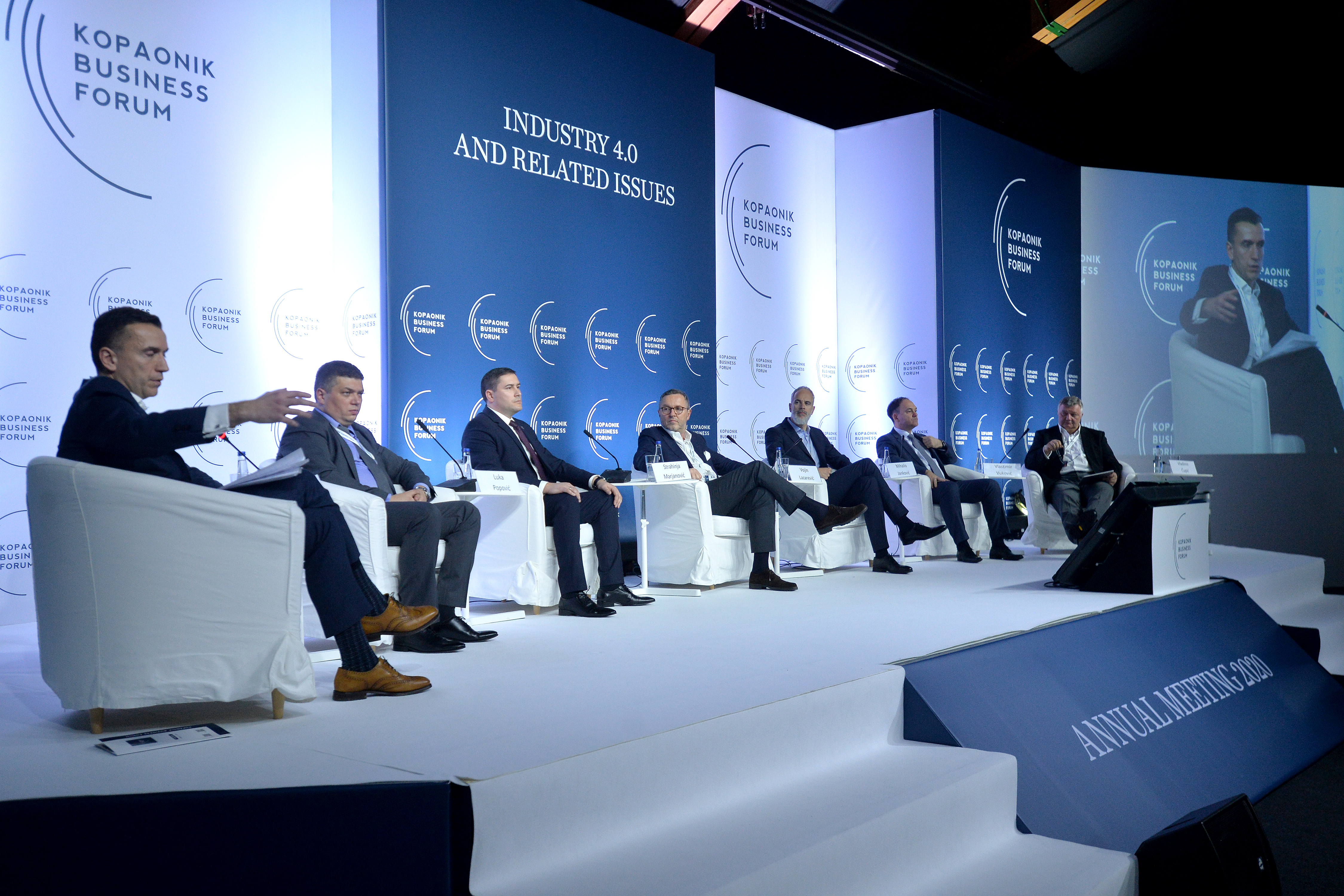The Serbian Davos – a place of dialogue for all stakeholders in social, economic and political life. A meeting to discuss all the most important topics for our society.

The recently finished 27th Kopaonik Business Forum brought together more than 1,300 participants with a single mission – to understand and actively shape the economic and business ecosystems in an effort to launch a global economy based on innovation and universal mobility. The conclusions made following the Forum are clear – as far as Serbia is concerned, there is macroeconomic stability and fiscal space for sustainable growth. In the past two years, Serbia has seen growth in economic activity at rates above 4% per year. The downward trend of the public debt’s share in gross domestic product (GDP) continued, the fiscal equilibrium was maintained and, after a long time, the share of total investments was above 22% of the national GDP. It is up to economic policy makers to use the existing stability to further grow and implement the Industry 4.0 postulates.
According to the organizers, in the past years, this most important economic gathering in Serbia has been trying to set up a platform for dialogue between different stakeholders in social and political life. Accordingly, businesspeople, academics, scientists, international financial organizations, as well as those who create economic policies come to the Forum because only one argumentative discussion of these participants can lead to sustainable solutions.
The central theme of this year’s Kopaonik Business Forum, organized for the 27th time by the Serbian Association of Economists of Serbia, was Industry 4.0 and related topics, namely the challenges of the future. A number of panels were dedicated to the Fourth Industrial Revolution, digitization, education, smart specialization, employment policy and the so-called brain drain.
“This year, we have defined a central theme that is equally important for all countries in the region as major dramatic changes are underway that will alter the world, the way it will produce, distribute and exchange value and change relationships between individuals, and between all institutions and individuals. All these changes are profoundly changing the way society produces, exchanges and distributes value, ” Aleksandar Vlahovi
, president of the Serbian Association of Economists and the Program Board of the Kopaonik Business Forum, says in a statement for Diplomacy & Commerce. “A time of great change is an opportunity for small, underdeveloped countries. But to take advantage of the opportunities that Industry 4.0 brings about requires clear social and political strategies and an understanding that transformation will encompass all social and political institutions, as well as individuals, ” he adds.
The topics that permeated the Forum were adapted to the central topic. There were discussions about education, which, according to Vlahović, must be a pillar of the development policy of our country and the whole region, artificial intelligence and the need to pay special attention to climate change.
Jorgovanka Tabaković, Governor of the National Bank of Serbia, Siniša Mali, Serbian Minister of Finance, Jan Kees Martijn, Head of IMF Mission to Serbia, addressed the guests at the opening ceremony of the Serbian Davos, Mariya Gabriel, European Commissioner for Innovation. Research, Culture, Education and Youth sent a special video message. Just like previous years, the KBF validated its great regional importance – out of 28 panels, at least ten were dedicated to the whole region and to the topics that are important to all countries in the region. A panel attended by former Western Balkan presidents and prime ministers, who are not politically active today and who are gathered around the Podgorica Club, drew a lot of attention.
For the first time at the Kopaonik Business Forum, Professor Aleksander Kavčić, from Carnegie Mellon University, a former student the Mathematics Gymnasium and one of the leading computer scientists in the world, gave the so-called open interview as a guest. Professor Kavčić is also the author of eight patents in the IT segment. He spoke at the Forum about the importance of patent protection and his own experience in the matter. He is also known to the public as the winner of a major lawsuit that his university filed against Marvel Technologies, which sought to challenge the intellectual property of Professor Kavčić and his mentor Professor Jose Moura.
On the last day of the Forum, Zoran Djordjević, Minister of Labour, Employment, Veteran and Social Affairs, Vanja Udovičić, Minister of Youth and Sports, Regina de Dominicis, UNICEF Director for Serbia, and Siniša Krneta, Director of the Belgrade Stock Exchange, addressed the participants in the plenary session. In her speech, Serbian Prime Minister, Ana Brnabić, underlined that the year 2020 would be a turning point due to the beginning of the third stage of the country’s transformation, adding that the emphasis would be on digitization as an opportunity for further growth and economic development.
The Serbian Association of Economists will summarize the conclusions from all panels held at the Kopaonik Business Forum in the next period and draft a document called the Kopaonik Consensus that will be presented to the public, as well as to all economic policymakers, the Government of the Republic of Serbia and the National Bank of the Republic of Serbia. The conclusions of this year’s Kopaonik Business Forum include concepts such as macroeconomic balance and stability, the rule of law, domestic investments, the fourth industrial revolution, education and innovation. Remains to be seen if and to what extent is Serbia ready for the changes brought on by Industry 4.0 and how much it will affect the social and political sphere, as well as the economy as a whole